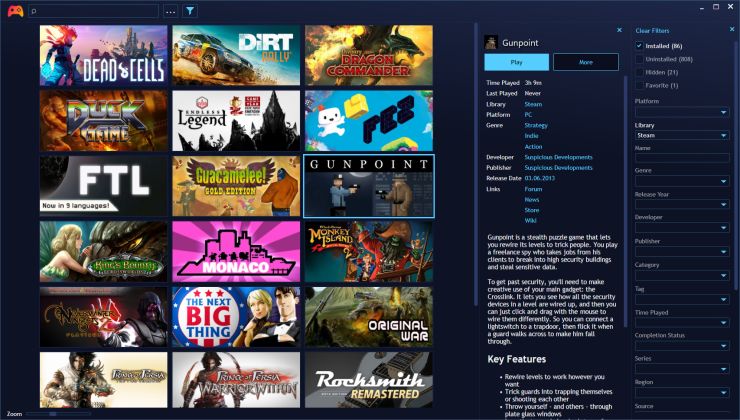It seems Canonical have done a bit of a U-turn on dropping 32bit support for Ubuntu, as many expected they would do. Their official statement is now out for those interested.
The most important part to be aware of is their new plan:
Thanks to the huge amount of feedback this weekend from gamers, Ubuntu Studio, and the WINE community, we will change our plan and build selected 32-bit i386 packages for Ubuntu 19.10 and 20.04 LTS.
We will put in place a community process to determine which 32-bit packages are needed to support legacy software, and can add to that list post-release if we miss something that is needed.
That's not the end of it though of course, eventually 32bit will be dropped which is inevitable really. Just not fully this time. Touching on this, they said in the post about using "container technology" to address "the ultimate end of life of 32-bit libraries" so hopefully by that time everything they need will be in place to make it super easy for users.
I'm glad Canonical have seen some sense on this, they clearly didn't communicate it well enough to begin with but they at least understand when they've made a big mistake like this and owning up to failures is part of what builds trust, so I'm happier now. Next time this happens, I just hope they give a very clear roadmap giving everyone proper time to prepare, which they didn't this time.
Their full statement is here. It will be interesting to see how Valve react, after announcing an end of Ubuntu support for Steam for Ubuntu 19.10 onwards.
This is how things are done and decided in the real world all the time, the only difference now is that the immature Linux fanbase for some reason decided to run around in circles screaming that the world was ending.
You mean like Microsoft gave up 32 bit support? And enforced UWP only? Oops...
So tell me when Canonical gave up 32-bit support and enforced UWP only. Oh that it right this very thread exists only because Canonical decided to not give up 32-bit support.
What ever this now have to do with Microsoft?!
I can see why they want to remove 32 bit libs because it's a ton of work.But a ton of work for whom? They still get the majority of their packages directly from Debian, throwing a patch on one or the other package and just compile. If Debian still supports newer versions of 32 bit libraries, how much work is there really to be done for canonical?
They get the base source code of each package from Debian, then they have to build the IA-32 version themselves, and provide support themselves. Considering the amount of packages in the repo it will take quite some time to build the packages for IA-32 and that is time taken from building for other archs and so on. If there where no cost for providing IA-32 builds then they clearly wouldn't have planned to throw them out to begin with.
The only real cost is QA. Building is normally cheap.
Currently Ubuntu have 6391 packages in Main, building that will take hours even for Canonical.
Seriously, do you people really think that Canonical decided to drop IA-32 for some other reason and then have their devs lie that it had to do with resources? What is next, UFO conspiracies, 9/11 Truthers, Freemasons, anti-vaxxers and anti-GMO fools?
This is how things are done and decided in the real world all the time, the only difference now is that the immature Linux fanbase for some reason decided to run around in circles screaming that the world was ending.
You mean like Microsoft gave up 32 bit support? And enforced UWP only? Oops...
So tell me when Canonical gave up 32-bit support and enforced UWP only. Oh that it right this very thread exists only because Canonical decided to not give up 32-bit support.
What ever this now have to do with Microsoft?!
We are talking about Ubuntu reverting their decision to not properly supporting 32 bit software anymore. You've said others were doing such stuff all the time. That's where Microsoft comes to mind quite naturally. Giving up 32 bits and enforcing UWP are two examples of stuff they couldn't do due to software that must be supported.
https://www.linuxinsider.com/story/MX-Linux-Reinvents-Computer-Use-86058.html
Currently Ubuntu have 6391 packages in Main, building that will take hours even for Canonical.
Makes me wonder how Debian is able to do such an enormous feat with its AFAIR ~70K packages...
What is next, UFO conspiracies, 9/11 Truthers, Freemasons, anti-vaxxers and anti-GMO fools?
Will you refrain from such talk in future?
This is how things are done and decided in the real world all the time, the only difference now is that the immature Linux fanbase for some reason decided to run around in circles screaming that the world was ending.
You mean like Microsoft gave up 32 bit support? And enforced UWP only? Oops...
So tell me when Canonical gave up 32-bit support and enforced UWP only. Oh that it right this very thread exists only because Canonical decided to not give up 32-bit support.
What ever this now have to do with Microsoft?!
We are talking about Ubuntu reverting their decision to not properly supporting 32 bit software anymore. You've said others were doing such stuff all the time. That's where Microsoft comes to mind quite naturally. Giving up 32 bits and enforcing UWP are two examples of stuff they couldn't do due to software that must be supported.
No I didn't say that others did such stuff all the time. What I said was that in the real world companies announce their plans, then they await comments from users and partners to see how said plans will be received after which the plans are either amended or put into production.
The problem here is that the Linux fanbase decided to see the announcement of plans as a foregone conclusion and then run around screaming.
1. Oh, the irony: we could see how important Ubuntu is and how much Linux has progressed on desktops in the recent years. Greek schools, Madrid Linux etc.
2. Canonical is struggling and apparently needs some help either in people getting involved or in donations.
I really wonder how much effort is really needed for support, development and maintenance of Ubuntu to be what it is today. Not to mention Debian and all the other developers involved. It seems to me Linux is in a way an alchemical miracle.
Currently Ubuntu have 6391 packages in Main, building that will take hours even for Canonical.
Makes me wonder how Debian is able to do such an enormous feat with its AFAIR ~70K packages...
What is next, UFO conspiracies, 9/11 Truthers, Freemasons, anti-vaxxers and anti-GMO fools?
Will you refrain from such talk in future?
I was mentioning the number of packages in Main, not the total number of packages in Ubuntu since Main is where Canonical provides support. If we count every single package including Updates and Backports then Ubuntu have over 70k packages as well.
Debian receives corporate sponsorships and are a community effort while Canonical as a company have to pay for their own servers, power and personel.
If people drop the conspiracy claims then I'm fully prepared to drop the conspiracy accusations. I have no intention to call people names unnecessary.
No I didn't say that others did such stuff all the time. What I said was that in the real world companies announce their plans, then they await comments from users and partners to see how said plans will be received after which the plans are either amended or put into production.
I missunderstood the reference, I guess. Still I hope other companies first talk to interested parties before making public announcements they have to retreat from bit by bit the following days. Doesn't make a good impression to many people, obviously.
The problem here is that the Linux fanbase decided to see the announcement of plans as a foregone conclusion and then run around screaming.
Well, actually "immature" and "world was ending" were part of your statement, too.
I can see why they want to remove 32 bit libs because it's a ton of work.But a ton of work for whom? They still get the majority of their packages directly from Debian, throwing a patch on one or the other package and just compile. If Debian still supports newer versions of 32 bit libraries, how much work is there really to be done for canonical?
I think that [this discussion on Twitter](https://twitter.com/Det_Conan_Kudo/status/1142763024618573824) is interesting (imho) on that subject (Neal Gompa is from Fedora). :)
Well, actually "immature" and "world was ending" were part of your statement, too.
I take it that you don't frequent Phoronix and Slashdot much. If so then don't let the curiosity get the better of you, it's not pretty.
Last edited by F.Ultra on 24 Jun 2019 at 7:07 pm UTC
Canonical is struggling and apparently needs some help either in people getting involved or in donations.I was actually thinking about that. I used to spend some considerable money on S.u.S.E. Linux in the past (which was still cheaper than downloading and burning CDs myself). Then came broadband and Debian and later Ubuntu, but I never really considered giving back (even though I can afford it much more easily nowadays than 20 years ago).
If we value open source and the freedom that comes with it, it gotta be worth something to us ...
I think they should try to team up with devs of other distros like Mint and so on. Then they can do the work together and support all i386 libs until a good working container (or whatever) solution is found.
May that not be enough, they could do some crowdfunding or so, to buy ressources do to help doing the job.
What 32bit apps from the distribution apart from 32bit wine and steam will you need? It will mostly be some libraries for programs outside of the repositories and they stated that it will be community determined which packages to build in 32 bit and that new ones also can be added after release.I have no idea how you formed this opinion of Canonical.
Slowly, during the years. I follow their mailing lists for more than a decade now. I've witnessed their transformation.
I can see why they want to remove 32 bit libs because it's a ton of work. They obviously didn't think it through, figured out the impact and are trying to rectify it. What else do you want them to do that they are not doing?
No, they are not trying to rectify it. They are trying to do damage control for that backwards decision. And they are clear in that they are still going to abandon 32 bits.
I can not trust a distro which will have an undetermined process to decide which apps are worthy or not to continue with 32-bit support. What if they drop support exactly for that application I need to use? So it's either all of them, or I'm out. So, I'm out.
If you find a package download the source package and build it, its only a few commands. Then wishlist it and tell your own build works, or that it doesnt and file a bugreport.
Edit: with downloading the source I mean the source deb, not unpackaged from upstream. The different architectures are build from the same source package, so that will be available, whether Ubuntu already ships the 32bit package or not.
Last edited by Redface on 24 Jun 2019 at 8:00 pm UTC
No I didn't say that others did such stuff all the time. What I said was that in the real world companies announce their plans, then they await comments from users and partners to see how said plans will be received after which the plans are either amended or put into production.
The problem here is that the Linux fanbase decided to see the announcement of plans as a foregone conclusion and then run around screaming.
When they "announced" this years ago, did they set a date? Was it fully decided and plotted out? How much did they broadcast their intentions so that people could prepare their transition?
Or was their announcement now still just a "plan" to be discussed, despite the fact the changes takes effect in a few months?
Everyone was surprised by this because information was not communicated clearly enough and in advance enough. Yeah, we are probably overstating the impact... but this a panic Canonical created.
That was the point I made before. There was no roadmap or prior warning, just discussions about possible plans and then BAM you have around four or five months to prepare. That's just not how such a massive thing should be communicated.No I didn't say that others did such stuff all the time. What I said was that in the real world companies announce their plans, then they await comments from users and partners to see how said plans will be received after which the plans are either amended or put into production.
The problem here is that the Linux fanbase decided to see the announcement of plans as a foregone conclusion and then run around screaming.
When they "announced" this years ago, did they set a date? Was it fully decided and plotted out? How much did they broadcast their intentions so that people could prepare their transition?
Or was their announcement now still just a "plan" to be discussed, despite the fact the changes takes effect in a few months?
Everyone was surprised by this because information was not communicated clearly enough and in advance enough. Yeah, we are probably overstating the impact... but this a panic Canonical created.
I'd classify it as too little, too late. Trust is pretty much gone. And I doubt anyone would recommend Ubuntu for gaming after this.
Too little would be too just continue to build the whole distribution in 32 bit. Now the actual needed libraries and programs will be identified so that better future proof solutions.
Or to continue with their plans as announced where there was way to many problems and to little time for the 19.10 and 20.04 release.
My trust in them increased by their new plan.
Well, this was announced faster than I thought, but is exactly what I expected: 19.10 will make the change, but for 20.04 they will revert to the "consolidated" system.That is not how I understand it. They are writing:
Thanks to the huge amount of feedback this weekend from gamers, Ubuntu Studio, and the WINE community, we will change our plan and build selected 32-bit i386 packages for Ubuntu 19.10 and 20.04 LTS.
We will put in place a community process to determine which 32-bit packages are needed to support legacy software, and can add to that list post-release if we miss something that is needed.
So they change it in 19.10 and continue forward with at least 20.04 with the select packages build for 32bit.
That is how they do major distribution wide changes, they roll out before the LTS, and may be reverted for the LTS. Like for example having Wayland as default in 17.10 where 18.04 switched back to xorg as default.
Since the also have a process to add more packages after release I see no reason they would reverse this for 20.04
No I didn't say that others did such stuff all the time. What I said was that in the real world companies announce their plans, then they await comments from users and partners to see how said plans will be received after which the plans are either amended or put into production.
The problem here is that the Linux fanbase decided to see the announcement of plans as a foregone conclusion and then run around screaming.
When they "announced" this years ago, did they set a date? Was it fully decided and plotted out? How much did they broadcast their intentions so that people could prepare their transition?
Or was their announcement now still just a "plan" to be discussed, despite the fact the changes takes effect in a few months?
Everyone was surprised by this because information was not communicated clearly enough and in advance enough. Yeah, we are probably overstating the impact... but this a panic Canonical created.
Here is the initial announcement from last year: [https://lists.ubuntu.com/archives/ubuntu-devel/2018-May/040310.html](https://lists.ubuntu.com/archives/ubuntu-devel/2018-May/040310.html) so it was just one year ago and not years as I first claimed (shame on me there).
edit: further research shows that they also made an announcement back in 2016: [https://lists.ubuntu.com/archives/ubuntu-devel/2016-June/039420.html](https://lists.ubuntu.com/archives/ubuntu-devel/2016-June/039420.html)
Last edited by F.Ultra on 24 Jun 2019 at 7:57 pm UTC
Well done and thanks you! to the Ubuntu team.
In the end this may actually turn out beneficial in creating the tools to deal with legacy software in the future.











 How to set, change and reset your SteamOS / Steam Deck desktop sudo password
How to set, change and reset your SteamOS / Steam Deck desktop sudo password How to set up Decky Loader on Steam Deck / SteamOS for easy plugins
How to set up Decky Loader on Steam Deck / SteamOS for easy plugins
See more from me